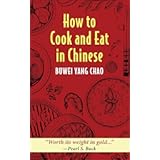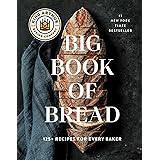Gaining weight effectively while adhering to an alkaline vegan diet can present a unique set of challenges, as highlighted in the accompanying video featuring Dr. Sebi’s son, Victor. This approach necessitates a specific focus on caloric density and nutrient absorption within the strictures of alkaline food lists. It is often observed that individuals new to this dietary pattern, such as those in the early weeks of transition, find it difficult to accumulate mass, even while building muscle through exercise.
Navigating the Alkaline Vegan Diet for Weight Gain
The pursuit of healthy weight gain on an alkaline vegan diet is primarily a matter of achieving a consistent caloric surplus derived from approved food sources. Unlike conventional diets that might emphasize lean animal proteins and processed grains for mass, the alkaline diet prioritizes foods that maintain the body’s optimal pH balance, focusing on fruits, vegetables, specific grains, nuts, and seeds. The challenge often lies in identifying calorie-dense options that also align with the strict alkaline framework, especially when traditional bulking foods are excluded.
A strategic approach demands a deep understanding of which alkaline foods offer substantial energy and macronutrient profiles. This is not merely about eating more, but about eating more of the right things that support cellular regeneration and metabolic efficiency without contributing to an acidic internal environment. The emphasis is placed on nutrient-dense whole foods that provide sustained energy and building blocks for muscle and healthy tissue development.
Core Alkaline Foods for Healthy Weight Accumulation
To successfully achieve weight gain on an alkaline vegan diet, specific foods are recommended for their high nutritional value and caloric density. These selections are instrumental in fostering a positive energy balance while upholding the alkaline principles. The careful integration of these items into daily meals can significantly impact one’s ability to gain weight healthily.
Garbanzo Beans: A Foundation of Plant-Based Protein and Complex Carbohydrates
Garbanzo beans, often referred to as chickpeas, are a cornerstone of many plant-based diets and hold significant value within the alkaline framework for those seeking to gain weight. These legumes are rich in complex carbohydrates, providing a sustained release of energy essential for daily activities and post-exercise recovery. Furthermore, garbanzo beans are an excellent source of plant-based protein, crucial for muscle repair and growth, which is often a primary objective when weight gain is desired.
In addition to macronutrients, garbanzo beans are packed with fiber, aiding digestive health, and various micronutrients, including folate, iron, and magnesium. Their versatility allows them to be incorporated into numerous dishes, from stews and salads to homemade hummus, making them a practical and effective food for increasing caloric intake. It is understood that these beans contribute substantially to a nutrient-dense, calorie-rich alkaline meal plan.
Quinoa: The Complete Protein Powerhouse
Quinoa, a highly esteemed pseudo-cereal, is another vital component for individuals focusing on alkaline vegan diet weight gain. It stands out due to its status as a complete protein, meaning it contains all nine essential amino acids necessary for human health, a characteristic not commonly found in plant-based foods. This complete amino acid profile is particularly beneficial for muscle protein synthesis and overall bodily repair, making it invaluable for active individuals.
Moreover, quinoa is abundant in complex carbohydrates, contributing significantly to the caloric intake needed for weight gain. It also offers a wealth of dietary fiber, vitamins (such as B vitamins), and minerals (including iron and magnesium), all while being naturally gluten-free. The ability of quinoa to provide substantial energy and high-quality protein makes it an indispensable grain for supporting muscle development and healthy weight accumulation within the alkaline dietary guidelines.
Avocados: Harnessing Healthy Fats for Caloric Density
Avocados are unequivocally a powerhouse for healthy weight gain on an alkaline vegan diet, primarily due to their exceptionally high content of monounsaturated fats. These healthy fats are calorie-dense, meaning a relatively small portion can contribute a significant number of calories, which is essential for creating the caloric surplus required for weight accumulation. Unlike saturated fats, monounsaturated fats are known for their beneficial impact on cardiovascular health.
Beyond their caloric value, avocados are rich in fiber, potassium, and vitamins K, C, B6, and E, providing a nutrient boost that supports overall well-being. Their creamy texture and mild flavor make them incredibly versatile, easily added to smoothies, salads, or consumed on their own. The strategic inclusion of avocados ensures that caloric intake is not only increased but also enhanced with vital nutrients, promoting holistic health alongside targeted weight gain.
Hemp Seeds: Omega-Rich Fuel for Muscle Development
Hemp seeds represent another potent food source for those aiming for alkaline vegan diet weight gain. These tiny seeds are remarkably nutritious, offering a balanced profile of omega-3 and omega-6 fatty acids, which are critical for reducing inflammation and supporting overall cellular function. Their high fat content also makes them exceptionally calorie-dense, similar to avocados, facilitating an increase in daily caloric intake without excessive bulk.
Additionally, hemp seeds are an excellent source of complete plant-based protein, containing all essential amino acids necessary for muscle repair and growth. They also provide valuable fiber, vitamin E, and minerals such as magnesium, phosphorus, and zinc. The ease with which hemp seeds can be sprinkled over meals, blended into smoothies, or used in dressings makes them a highly convenient and effective addition to any alkaline diet focused on building healthy mass.
Dispelling Common Misconceptions: Oats, Kale, and Spinach in the Alkaline Framework
Navigating the alkaline diet often involves clarifying popular misunderstandings about certain foods, particularly those commonly perceived as healthy in other dietary contexts. The strict alkaline philosophy, championed by figures like Dr. Sebi, differentiates significantly from mainstream nutrition regarding the classification of foods as alkaline or acidic. Understanding these distinctions is crucial for adherence and efficacy when pursuing goals like weight gain.
The Starch Factor: Why Oats Are Typically Excluded
A common query among new alkaline dieters, as raised in the video, concerns the suitability of oats. The direct answer from Dr. Sebi’s son, Victor, is that oats are generally not considered alkaline due to their starch content. In the context of the Dr. Sebi nutritional guide, complex starches are often viewed as potential contributors to acidity and mucus formation within the body, which is contrary to the diet’s core principles of maintaining an alkaline environment and promoting cellular health.
This perspective contrasts with conventional dietary advice that often promotes oats for their fiber and heart-healthy benefits. However, within the alkaline methodology, starches from grains like oats can be difficult for the body to process effectively, leading to fermentation and an acidic residue. Alternatives such as quinoa, amaranth, and wild rice are preferred for their more favorable alkaline properties and nutrient density, providing similar caloric and carbohydrate benefits without the perceived acidic impact of oats.
Understanding Oxalates: The Kale vs. Spinach Distinction
Another critical clarification in the alkaline diet pertains to green leafy vegetables, specifically the comparison between kale and spinach. While both are recognized as nutrient-dense superfoods in general nutrition, their alkaline classification and impact on the body differ significantly in this specific framework. Victor’s assertion that spinach can “stay the iron from your body” and contribute to anemia in vegans points directly to the issue of oxalate content.
Spinach is notably high in oxalic acid, or oxalates, which are compounds that can bind to essential minerals like iron and calcium, thereby reducing their bioavailability and absorption by the body. This chelation process can indeed exacerbate mineral deficiencies, leading to conditions such as anemia if not managed carefully. Conversely, kale, while containing oxalates, generally possesses lower levels compared to spinach, and is considered “less acid” and to “contain more water,” making it a preferred choice within the alkaline diet.
It is, therefore, understood that the potential for oxalates to interfere with mineral absorption is a key factor in the preference for kale over spinach in this diet. For individuals following an alkaline vegan diet, particularly those susceptible to anemia, prioritizing lower-oxalate greens and ensuring adequate vitamin C intake (which enhances iron absorption) becomes paramount.
Optimizing Nutrient Absorption and Addressing Anemia on an Alkaline Diet
Addressing nutrient absorption is vital for overall health and particularly for individuals on an alkaline vegan diet seeking to gain weight, especially given the concern about anemia mentioned in the video. The body’s ability to assimilate nutrients from food is as important as the food choices themselves. Enhanced absorption ensures that the caloric and nutritional investments translate into tangible health and weight benefits.
To counteract potential issues like iron deficiency, which can be prevalent among some vegans, a holistic approach is recommended. This includes pairing iron-rich alkaline foods, such as garbanzo beans and quinoa, with sources of vitamin C, like bell peppers or citrus fruits, as vitamin C is known to significantly boost non-heme iron absorption. Furthermore, ensuring proper hydration and digestive health through fiber-rich alkaline foods supports efficient nutrient assimilation across the board. The strategic combination of these elements is imperative for both nutrient repletion and successful alkaline vegan diet weight gain.
Strategic Eating for Sustainable Alkaline Weight Gain
Achieving sustainable weight gain on an alkaline vegan diet necessitates a deliberate and consistent approach to eating. The focus extends beyond simply consuming approved foods to strategically optimizing caloric intake and macronutrient timing. It is understood that a consistent caloric surplus, derived from the recommended alkaline foods, forms the foundation of any weight gain strategy.
This involves increasing portion sizes of calorie-dense alkaline foods like garbanzo beans, quinoa, avocados, and hemp seeds at each meal. Moreover, incorporating nutrient-rich snacks between meals, such as avocado slices with approved herbs or a small serving of hemp seeds, can further contribute to the daily caloric target without overwhelming the digestive system. Careful attention to meal frequency and the overall energy balance is paramount for fostering muscle development and healthy weight gain within the Dr. Sebi framework. When aiming for alkaline vegan diet weight gain, it is always recommended that professional guidance be sought to ensure individual needs are met.











